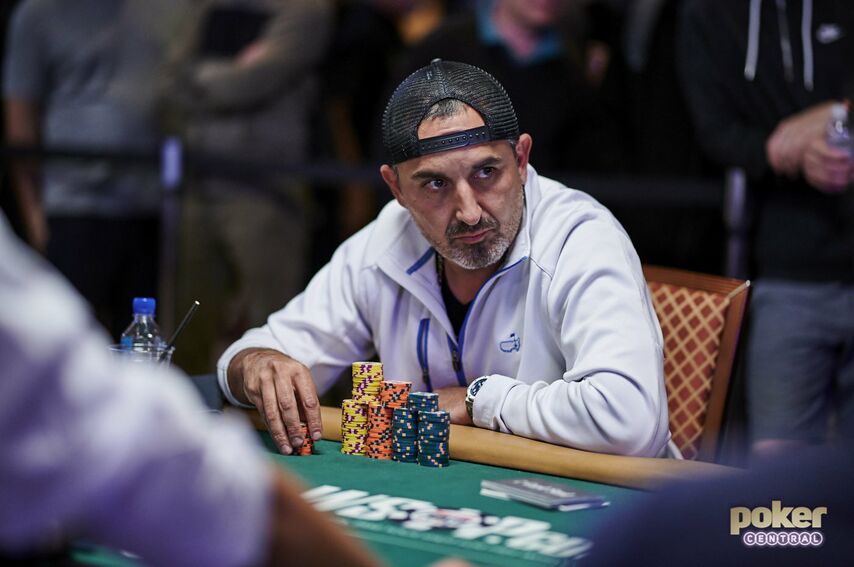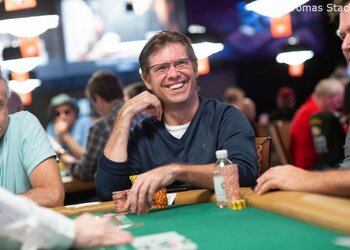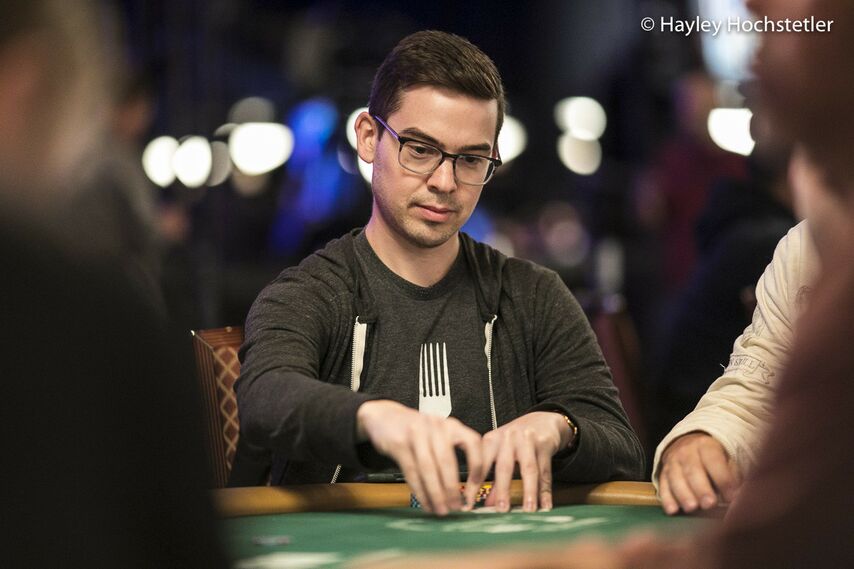In 2021, Josh Arieh won two bracelets and was named WSOP Player of the Year. At the last World Series, he had every chance to repeat the success. In terms of prize money, he even surpassed the previous years' figures, but he still left Las Vegas ahead of schedule and with a feeling of deep disappointment. At the height of the series, Josh admitted on Twitter that he scammed almost all of his winnings.
Now, he assures that he was just joking, and the reasons for early departure were something else entirely. In a confession to PocketFives, Arieh talked about the real reasons behind his decision.
I can be thrown in with the veterans of the World Series. Many may think that I have already seen everything and it is impossible to surprise me, no matter what happens. This year, the series started great for me – in the first week I won more than in the entire series last year, when I became the “Player of the Year”. For most professionals, that drive could become an entire streak and they could easily play their A-game for six weeks. In any case, you have already practically secured a seven-figure profit.
At first, everything was great for me too, I played my best poker and enjoyed every second spent at the table. But 3 weeks passed, and I began to fade. In my case, this happens in a particularly aggressive way. In this state, I am unable to beat even the weakest recreational players. At night, lying in bed, I ask myself: “Why is this happening to me?”
I got used to such pressure from an early age. In my youth, my income was pool. I spent 16 hours a day in the billiard room, went there seven days a week. Even then, he adored battles at the billiard table and the spirit of competition. And I always managed to play with an advantage. Grinding at the WSOP reminds me a lot of those days – it's a war to the last breath. If I manage to show the best poker throughout the series, it will be enough to get a couple of real chances for a big run.
One of my strengths as a player is that in poker I am always extremely honest with myself. I analyze every bad hand to see if the loss is my fault. I'm sure even in the most unfair bad beats you can find some kind of reason. For example, as a result of my actions in previous hands, I could somehow have set this situation up. Sometimes they just can't stand my aggressive play. Often, this is exactly what I achieve – making my opponent to make a mistake. But the bottom line is that I never pretend to be a victim, I take full responsibility for myself.

Why did my game fall apart so quickly this time? Over the years, I realized that it is much easier for me to give up right away, than to fight to the end and then still lose. In the second case, I experience what is happening much more painfully. It is much easier for me to immediately take a risk in the hope of a quick win than to tune in to a monotonous grind.
I have already tried all the ways to find new motivation and continue the fight. But even 20 years of experience does not help me. It seems to me that psychologically I am much more stable than most players. Throughout my career, I have been closely monitoring my mental health, but for some reason inexplicable to me, this still wasn’t enough.
I played 30 out of 88 tournaments in the World Series, cashed in 10, made three final tables and earned about $1 million for myself and the investors. Sounds like a great summer, right? On the financial side, it was, but I rate my psychological state this year at 3, or even 2. In recent weeks at the table, I looked frankly pathetic, and every day the game only got worse. The inability to stay motivated and interested in the game was a real tragedy for me. I had a chance to keep my Player of the Year title and I failed.
This year I was nominated for the first time in the Hall of Fame, but the late Lane Flack was chosen.

LEGEND
Exactly a year ago, on July 19, Lane Flack died, and at the close of this year's World Series he was inducted into the Poker Hall of Fame. GipsyTeam remembers everyone's favorite, merry fellow, drunkard and winner of six WSOP bracelets.
And it seems to me that I will remain an eternal candidate until I win the fifth bracelet. I have two daughters who still believe that money grows on trees. It would seem that there should be no problems with motivation! I hope I will still have the opportunity to show a decent result in the World Series, but my main rival is time, and it is rapidly running out. I no longer have the strength to play quietly for 14 hours in a row.
Poker is a game of the young. And very soon I will have to come to terms with the fact that from the first minutes my opponents have an advantage over me. Who knows, maybe this has already happened? But for now, my goal is not to look for ways to retreat, but to continue to fight every second while I'm sitting at the table. I'm sure my A-game is still quite good for this, the main thing is not to lose it. But first I need to win my inner battle with myself and come prepared to fight every day.
Josh admitted that Kevin Rabichow inspired him for this message. In a series of tweets headlined "How was your streak?" one of RunItOnce's lead instructors urges against using financials as a measure of success:
How was the series? – most players who have been to the WSOP have heard this question many times from friends, family and colleagues.
How many people will answer based solely on the result? How else can you rate your performance?
– What goals did you set for yourself before the series?
– Did you manage to achieve them?
– If the series was unsuccessful, what was the reason?
– If you were successful, what helped you?
We understand that in poker you cannot set specific monetary goals, you need to focus on the process. The same approach can be used in evaluating success. So focus on the process!
What else can you strive for in poker besides making money? Personally, I like to solve problems that have arisen in recent sessions.

For example, at the beginning of the series, I thought about bluffing on the river in two hands, but didn't dare to do it. I began to figure out what the reasons were – psychological or strategic? Now I understand that in both hands the all-in was the right decision. But I didn't take the risk because both times my opponents had bigger stacks. Surely many are familiar with situations when the safest play comes to mind first, and for the rest of the time you're thinking, you convince yourself that this is the decision you should make.
After that, I started keeping a close eye on my bluffs. And until the end of the series, at every opportunity, I thought about all-in on the river. Naturally, I didn't start pushing 100% of the time, but it became the basis of my thought process and coincided with the most successful stage of the World Series for me.
Mental game also plays an important role. Even before the series, I put a lot of effort into building my daily routine for the morning and evening hours. These were simple but important procedures. I did this not for show, but to maintain energy and focus throughout the trip to Vegas. Compared to last year's streak, I've made huge progress, but there's still room for improvement. Now, outside of the series, I want to make my routines even more solid, so that it becomes easier to replicate.
Professional athletes often say in interviews that the preparation process is more important for them than the result. It builds faith in what you are doing. The desire to win money is understandable, but you should not evaluate yourself only by losing or winning.





